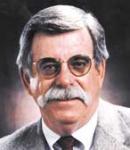May 4, 2009

Meet Marie Gamino. She is the lady in the photo accompanying this commentary. She was raised in Firebaugh. Now lives in Mendota; single mother who raised two daughters, both now grown. One lives in Mendota; the other in Fresno. She is grandmother to six.

MARIE GAMINO, farm worker, Mendota, Calif., participated in the March for Water.
We have at least one other thing in common besides being grandparents. We both participated in the final day of the March for Water. She was carrying a sign taller than herself. I was carrying a recorder and my camera. I decided to walk rather than use press credentials to get into the event at San Luis.
The four-day walk brought together probably 15,000 farmers and farm workers to protest the shutdown of Delta pumps to protect fish at the expense of people.
“I don’t know what I am going to do for work,” said Marie, the daughter of farm worker parents. She has worked all her life in the farm offices, fields and packing sheds on the West Side of the San Joaquin Valley. She spent 10 years at De Francesco and Sons, Inc., a garlic dehydrator near Firebaugh, until it closed a little more than three years ago. De Francesco was forced out of business by politics — the U.S. opening up domestic markets to cheap Chinese imports.
Now a different brand of politics, environmental water law and endangered species, is threatening not just her ability to work, but to live where she has family, her church and her circle of friends.
She has worked two jobs — daytime in the field or in an office and packing sheds at night — through the spring and summer to provide for her family when the daughters were younger.
“I worked two jobs to make enough to provide for the family through the winter,” she explains.
I walked the last stretch of the march from Highway 33 to San Luis Reservoir. It was my first protest march as a “participant.” As I walked along, the mood was a bit somber. Quiet conversations among groups. Many families walked with their children, some as young as toddlers.
Wealthy West Side farmers marched alongside farm workers. I tried striking up conversations with the workers. My Spanish did not get me very far, but as I struggled to visit with people I was always greeted with a pleasant smile, even if the verbal communication was a little awkward.
As we walked along a road paralleling Highway 152, many cars and trucks heading toward Los Banos honked support. Arms were raised to say thanks for the acknowledgment.
Not sure of the distance between 33 and the lake, but my dogs were barking loudly the final mile. It was a welcome order from someone with a megaphone telling the marchers to get on the buses lining the roadside to be ferried into the Basalt recreation area where the walk-ending rally was held.
I found a seat and Marie joined me. That is where I got a little bit of her life history. Married young. Did not graduate from high school, but worked all of her life in agriculture in the Valley. I was probably the only person on the bus not fluent in Spanish and everyone knew it as Marie and I visited. Her smile was pleasant, but the apprehension in her voice and eyes said at her stage in life she was facing a major upheaval. Her life was changing and she did not know what the future held.
Life offers no guarantees. Most of us have faced life-changing job situations, but somehow what Marie is facing is not fair. Facing change because someone wants to protect a minnow does not seem right.
The California Latino Water Coalition and the farmers who fronted the cost of the march were looking for a glimmer of hope and some action as a result of the walk for water. They wanted someone to turn on the Delta pumps. They didn’t get it from the politicians who postured and danced for the television cameras; politicians leading chants like a bunch of cheerleaders.
I understand politics and how the game is played. I respect people who run for public office and get elected, even though I may not agree with them most of the time. However, in many cases the politicians who commandeered the cameras on the shore of San Luis were almost insulting to the crowd. The one who really stuck in my craw was Republican U.S. Rep. George Radanovich, the congressman from the Central Valley. Mr. Radanovich is my congressman. He has been considered a close ally for agriculture, yet he was one of the architects of the San Joaquin River restoration bill that gives water to fish first before farmers and farm workers. Nevertheless, his chant at the rally harangued the “government” for protecting fish before people. It was unbelievable. He is the government that has given fish priority over farmers and food production.
It was a crowd devoid of the United Farmworkers who boycotted the march, a fact pointed out repeatedly by organizers. However, California’s governor implored the crowd to follow the example of Cesar Chavez and keep on marching and drawing attention to the cause. Chavez and the UFW have a violent history and a cause far different than the farm workers and farmers at San Luis.
This was not a labor union rally. It was a march for people’s survival, yet California’s governor did not sound like he grasped that.
There was something missing amid all the speeches until former Fresno mayor Alan Autry spoke. He is the son of a farm worker. He worked the fields. He said what others did not recognize.
He made the point to his friend, the governor, and the other politicians that the sea of faces before them at the San Luis boat ramp will never be at political fundraisers and parties. They won’t write big checks to political action committees to underwrite political campaigns.
All the people on the March for Water do is feed a nation and the world. They deserve better than they received at San Luis.
email: [email protected]
About the Author(s)
You May Also Like






